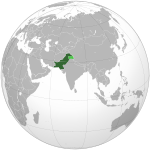Effectiveness of the Law
The Trans Protection Act is not the first time such government provisions to protect the rights of Trans people were taken, as the Supreme Court of Pakistan declared that trans peoples were equal to non-transgender Pakistani citizens in 2010. This declaration of equality should have entitled trans peoples to equal job opportunities, education, and exempted them from discrimination. However, none of these things actually happened since the declaration, as in the last census roughly 40% of transgender peoples reported being illiterate, and the largest sources of income for trans peoples in Pakistan are dancing and sex work. [7]
Due to the lack of penal nature for the Trans Protection Act, it has only served the same function that the aforementioned Supreme Court declaration did, and has only offered trans people formal equality and not substantive equality. The only penalty mentioned throughout the entire law is against gurus who incentivize their chenas to beg. [8] The lack of penalties give the law no teeth, and there is no genuine incentive for the citizens to follow the law, and no infrastructure or concrete punishments in place to enforce it. This is present especially on the topic of education, as the law states that if a trans person meets the admission requirements for a school then their gender cannot be a deciding factor on their admittance to that school. This addresses the actual admittance processes that correlate with getting into a school, the law does not address the social stigmas and customs that make it extremely difficult for a trans person to meet these acceptance goals in the first place. [8] The law also does not address many pressing issues to the trans community which include hate crimes against trans people, [8] and proper healthcare for trans people. [9]
This page is based on this
Wikipedia article Text is available under the
CC BY-SA 4.0 license; additional terms may apply.
Images, videos and audio are available under their respective licenses.
